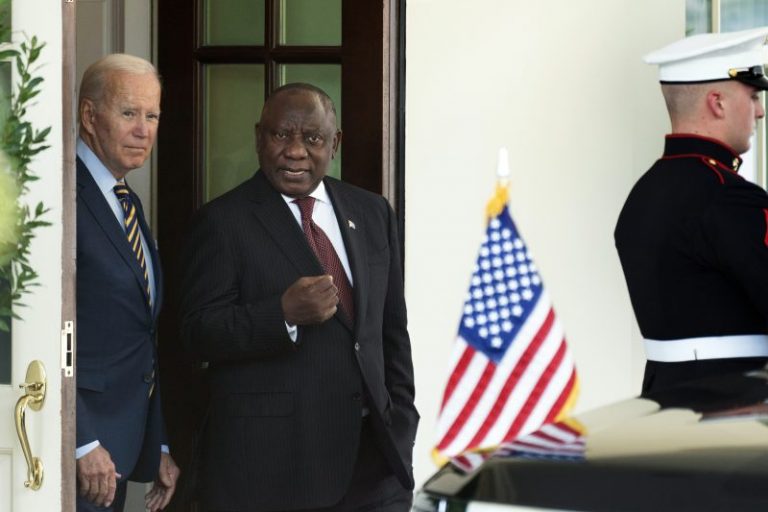President Biden next week will announce U.S. support for the African Union to become a permanent member of the Group of 20 nations, a step that would give African nations a long-sought prize and could make it easier for Biden to secure their cooperation on issues like Ukraine and climate change.
The G-20 is a highly influential forum for the world’s most powerful economies, and South Africa is the only member from the continent, joining multiple participants from Europe, Asia and the Americas. Biden will make the announcement during next week’s U.S.-Africa Leaders Summit in Washington, said Judd Devermont, the White House National Security Council’s senior director for African Affairs.
The African Union represents the 55 states on the continent.
“It’s past time Africa has permanent seats at the table in international organizations and initiatives,” Devermont said in a statement. “We need more African voices in international conversations that concern the global economy, democracy and governance, climate change, health, and security.”
South African President Cyril Ramaphosa and Macky Sall, the president of Senegal and the chairperson of the African Union, have pushed Biden to increase their representation on the G-20, Devermont said.
Ramaphosa directly asked Biden for his support for the African Union joining the G-20 when he visited the U.S. president in Washington in September, while Sall also directly pressed Biden on the issue and has written him several times.
Biden’s push comes as African countries and other countries in the global south have borne the brunt of the economic impact from Russia’s invasion of Ukraine. Those countries have been hit especially hard by a global food crisis as well as rising fertilizer and fuel prices, making it difficult for the United States to secure their support during United Nations votes that have condemned Russia for the invasion and for its annexation of Ukrainian territories.
More broadly, African countries have long expressed frustration that they often bear the worst repercussions of global events but are not adequately represented in decisions that can disproportionately impact them.
Many African countries, for instance, were hit particularly hard by the economic fallout from the coronavirus pandemic. They also are among the worst hit countries by rising temperatures, droughts and other extreme weather events fueled by climate change.
African leaders have argued they need to have a more central role in key international bodies to shape the direction of decisions that arise out of global events. White House officials also framed the decision as building on Biden’s call earlier this year for a more representative United Nations Security Council, where each of the five permanent member states — the U.S., the United Kingdom, Russia, China and France — hold veto power.
Administration officials said that next week’s summit, to be held in Washington on Tuesday, Wednesday and Thursday, reflects a recognition that African nations are critical when it comes to global issues like health, climate and the economy.
But the summit is also unfolding as the U.S. mounts a concerted push to form and strengthen alliances around the globe that will allow it to counter the influence of China.

